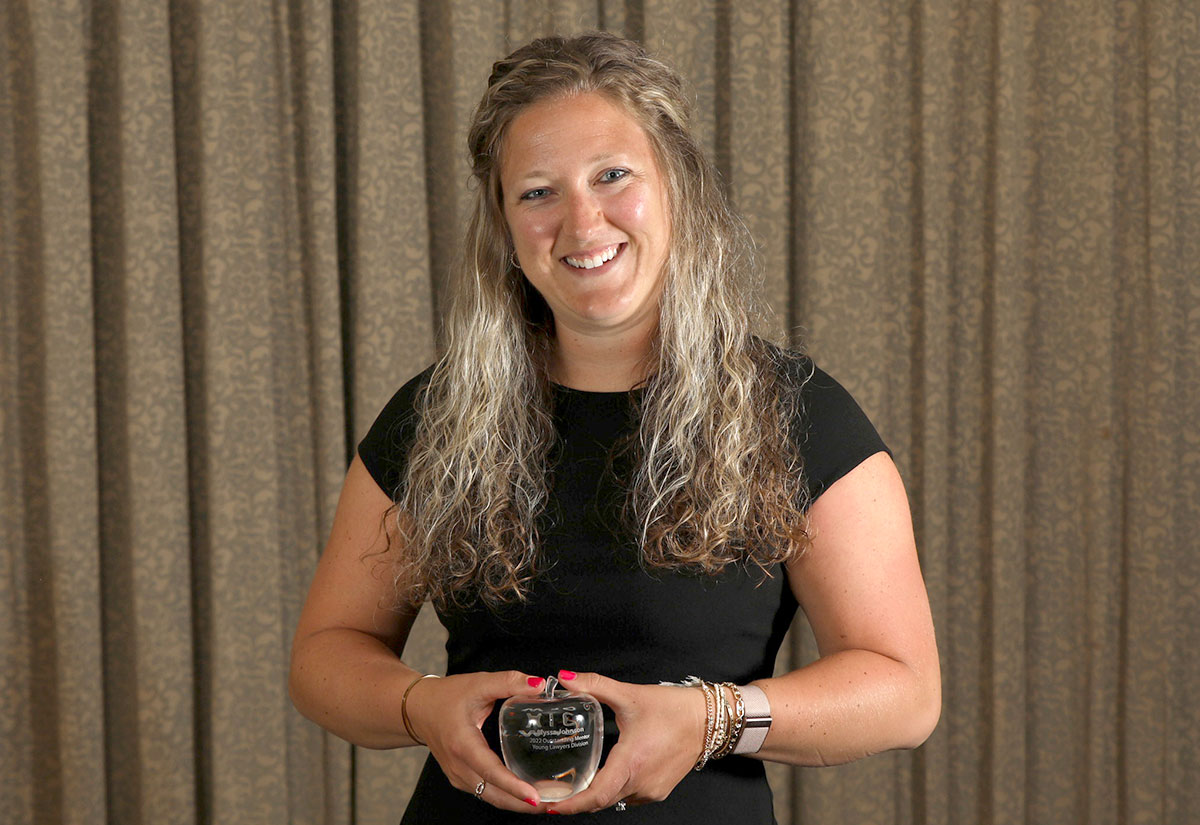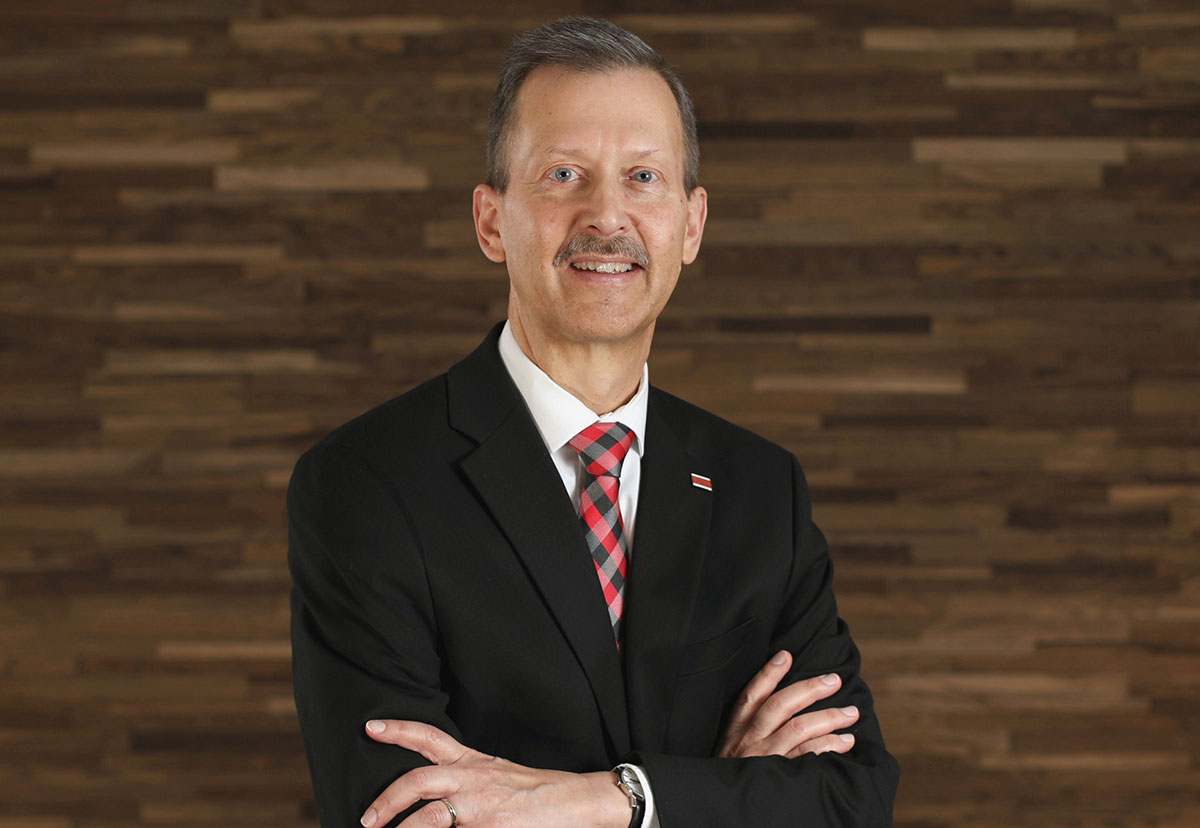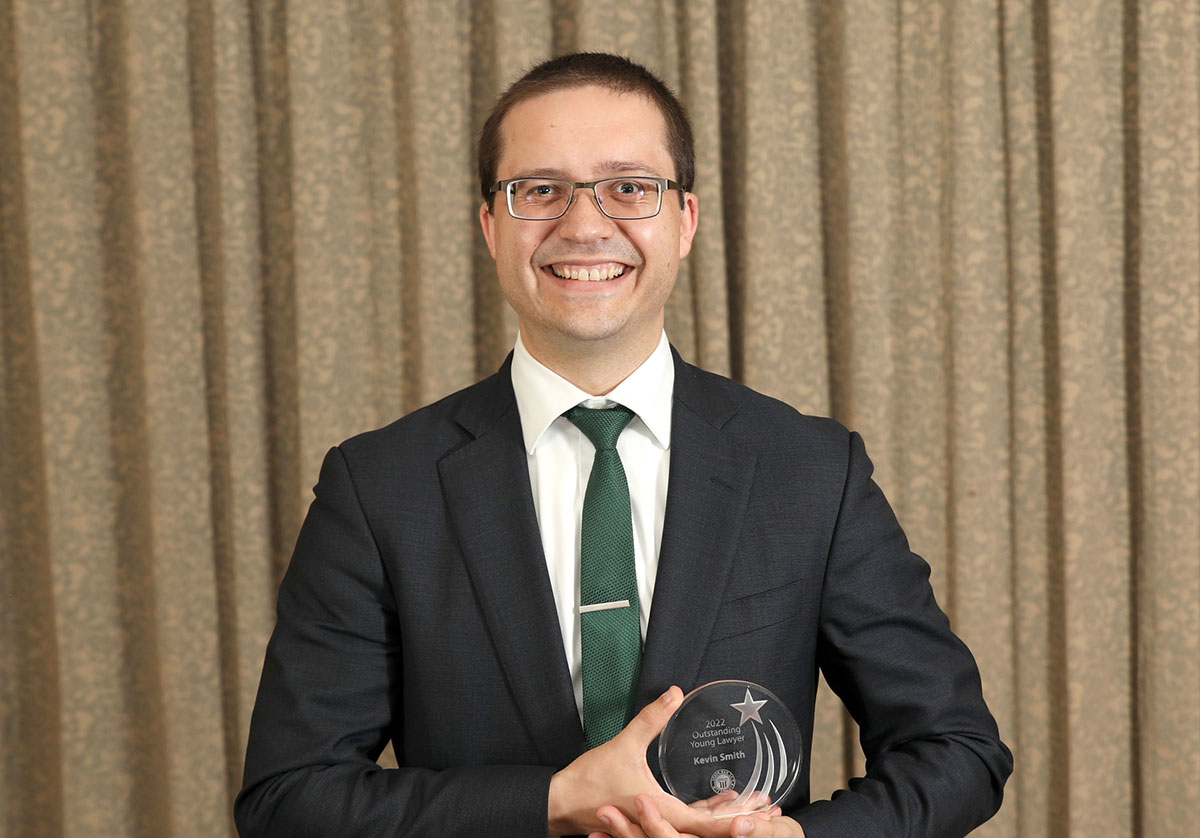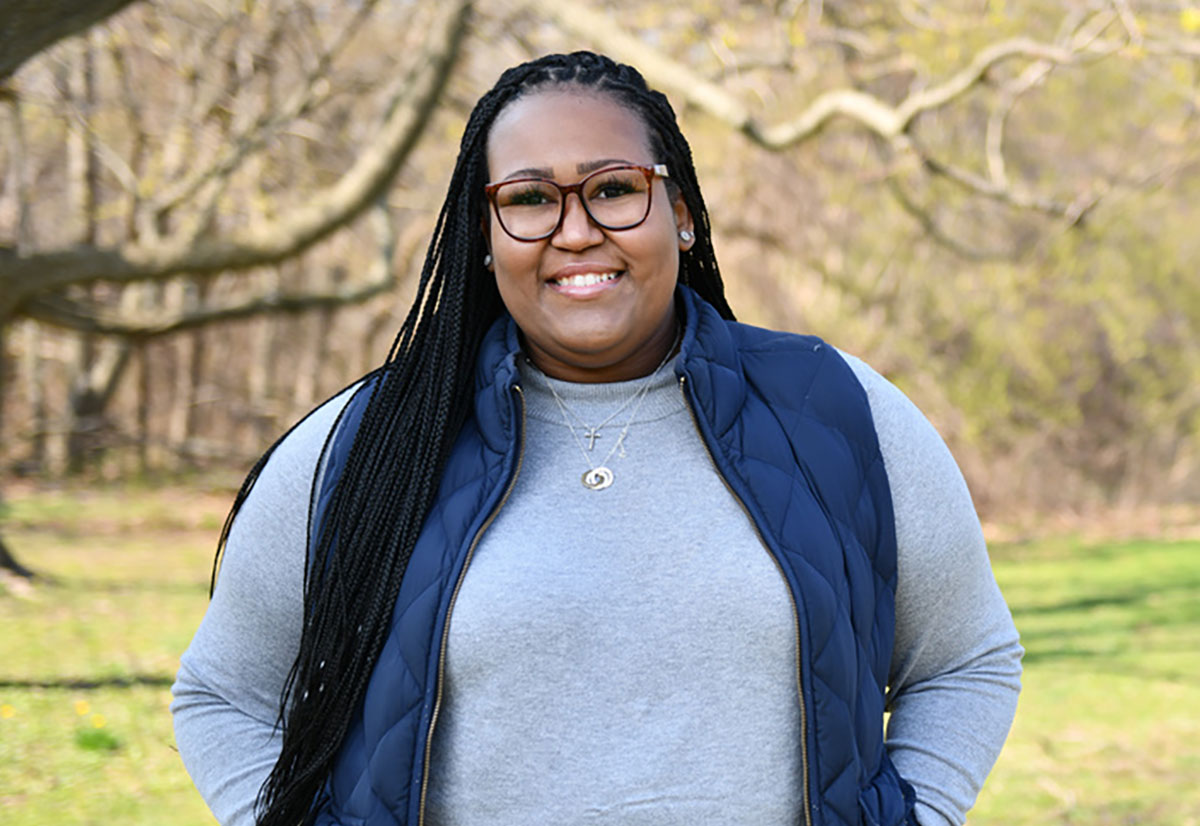
Jan. 4, 2023 – Itching to make a New Year’s resolution for 2023? Resolve to become a mentor to a young lawyer. Mentorship comes in many different forms, and addresses a number of issues that are important for the legal professional as a whole.
In this article, four Wisconsin attorneys discuss how mentoring has benefitted their practices, from making them better judges or litigators, to transactional practice. As one notes, mentoring has benefits to all involved, and makes the legal system better.
‘I Don’t Know Where I’d Be Without her Guidance’
The mentoring Alyssa Johnson received as a young lawyer was crucial.
 Jeff M. Brown is a legal writer for the State Bar of Wisconsin, Madison. He can be reached by email or by phone at (608) 250-6126.
Jeff M. Brown is a legal writer for the State Bar of Wisconsin, Madison. He can be reached by email or by phone at (608) 250-6126.
As a first-generation college and law student, Johnson needed someone to show her the ropes of law firm life. That someone was Christina Demakopoulos, who ran the litigation department at the firm where Johnson was hired after law school.
“She took me under her wing and was really good about helping with the stress of the job and all the concerns you have about making mistakes,” Johnson said.
While Johnson and Demakopoulos have moved on to other jobs, their relationship endures.
“I call her whenever something is going on that I just don’t feel right about and I need ear another ear,” Johnson said. “I tell her all the time that I don’t know where I’d be without her guidance.”
In 2016, Johnson joined
Ready. Set. Practice., the State Bar of Wisconsin’s mentoring program.
After three years as a mentee, Johnson began mentoring other lawyers. In 2021, she was the recipient of the Young Lawyer Division’s Outstanding Mentor Award.

“I feel like I’m mentored by mentees. I learn from them just by talking out scenarios and learning from their experiences. I feel like I’m helping them but actually they’re helping me.” – Alyssa Johnson, recipient of the 2021 Young Lawyer Division’s Outstanding Mentor Award
According to Johnson, senior counsel with Barron and Newburger, P.C. in Milwaukee, mentoring is a two-way street.
“I feel like I’m mentored by mentees,” Johnson said. “I learn from them just by talking out scenarios and learning from their experiences. I feel like I’m helping them but actually they’re helping me.”
Johnson, who practices in her firm’s attorney risk management and consumer law groups, said her mentoring rarely touches on substantive legal issues.
“The mentoring I’m giving isn’t ‘This is how you apply the law,’” Johnson said. “It’s more like, ‘I ran into this situation with their partner,’ or ‘I’m having problems making hours,’ or ‘This personality conflict came up. How do I deal with that?’
She also said that finding time for mentoring is easier now than it was before the pandemic.
“It’s easier over Zoom because you’re not trying to fit it in with all your billable hours,” Johnson said.
Want to be a Mentor?
Check out the State Bar of Wisconsin’s
Ready. Set. Practice. Program, a voluntary program that matches new lawyers with experienced mentors in order to assist with law practice management, effective client representation, and career development. Applications are accepted in September and October each year.
‘Clients Are Better Off’
For Barron County Circuit Court Judge James Babler, mentoring is about more than doing good – it’s about boosting the quality of his own work.
“We want to have good lawyers in court because as a judge, I make better decisions if I have better presentations from both sides,” Babler said. “If I get the best information, they get the best decision.”
Mentoring young lawyers helps them make better presentations, Babler said.
“Some people can learn it on their own, but they certainly learn it faster with the mentoring,” Babler said.
An important mentor early in Babler’s career was Barron County Circuit Court Judge James Eaton. As a young prosecutor, Babler appeared regularly before Eaton.

“Some people can learn it on their own, but they certainly learn it faster with the mentoring.” – Barron County Circuit Court Judge James Babler
“He was one of those judges who demanded that you be at the top of your game,” Babler said. “You learn a lot that way.”
Babler, who was appointed to the bench in 2003, maintains similarly high expectations of the lawyers who come before him. He pairs those expectations with feedback offered to the lawyers once cases are complete – feedback that’s often focused on soft skills.
“Often times it’s on style or personality, because it’s not all about the law,” Babler said. “People often win or lose cases based on how it’s presented.”
Babler said he sees less mentoring occurring in the courthouse today than he did in the past, especially among overwhelmed public defenders and prosecutors.
According to Babler, who was named 2021 Judge of the Year by the State Bar’s Bench and Bar Committee, that’s a problem, because the benefits of lawyer mentoring reach beyond the courthouse doors.
“Clients are better off too,” Babler said. “They whole system is better if we have a high standard.”
‘It Makes all the Difference’
One young lawyer who’s meeting that high standard is Kevin Smith, a state public defender in Rock County.
Smith, named the Young Lawyer Division’s Outstanding Young Lawyer of the Year in 2021, said much of his legal acumen is attributable to guidance from mentors.
“Everything that goes well in a courtroom for me is an extension of something that a mentor taught me,” Smith said.
One of Smith’s first mentors was Joe Bugni, a federal public defender. During law school, Smith interned with Bugni.
“Joe’s an incredible lawyer, but he takes the time to work with everyone who comes through his office to pass along what he knows, and as a result you see his students go off and do really good work. It makes all the difference.”
Smith, who recently took on a practice coordinator role with the public defender, regularly mentors law clerks in his office.

“Everything that goes well in a courtroom for me is an extension of something that a mentor taught me.” – Kevin Smith, a state public defender in Rock County and the 2021 Young Lawyer Division’s Outstanding Young Lawyer of the Year
“That’s where you really learn to actually be a lawyer, to actually make a difference for other people in the legal system, by watching and learning from your mentors and picking up their best habits and applying them to the way you think and do things… accumulating all those tools and then learning how to use them in a way that’s authentic to you.”
For Smith, mentoring is essential to good lawyering.
“If you want a good environment – an intellectually curious environment, an environment that challenges you – then you have to have good colleagues, and you only get good colleagues if you invest the time to make sure that there’s a steady pool coming in and that there’s this environment in your office,” Smith said. “You get out of it what you put it in it.”
Smith said that mentoring helps him be a better lawyer.
“Sometimes you don’t realize that what you’re doing could be improved unless you have to explain it to somebody,” Smith said.
Smith admits that it’s often hard to find the time for mentoring. If left unaddressed, the time crunch faced by public sector lawyers who would be mentors will have a wide and lasting effect, he said.
“Those of us in the system are already seeing a brain drain,” Smith said. “And the next generation’s going to pay for it unless people invest in the system now and take into account the kind of effort that has to go into things like mentoring.”
‘They Really Provided a Community for Me’
For Ashley Smith, mentoring was key to making it through Marquette University Law School.
Smith grew up in Chicago and attended college in Pittsburgh, so she found herself adjusting to a new place while trying to acclimate to the routines and rigors of law school.
Smith turned to the 3Ls in the Black Law Student Association for help.
“They were the ear I needed, especially that first semester when you’re preparing for finals,” Smith said. “They really provided a community for me that made my adjustment to law school far easier than it would have been otherwise.”
Upon graduation, Smith took a position with Godfrey and Kahn S.C., in Milwaukee. Within the firm, she sought out multiple mentors.
“Marvin Bynum and Rebecca Lopez are two people who have really helped me navigate this space as a person of color,” Smith said.

“So much of the value that partners add, aside from their book of business, is being able to develop and mentor young associates coming up.” – Ashley Smith, Godfrey and Kahn S.C.
For help with her practice, which focuses on corporate law, including mergers and acquisitions, Smith said she’s relied on a senior associate, including Evann Derus.
Smith has begun serving as a mentor herself. She considers mentoring an extension of her position as the president of the Wisconsin Association of African American Lawyers.
“I’m very invested in the careers of Black attorneys here in Wisconsin,” Smith said. “Keeping them here is so important for our State Bar, and I make a point to stay connected regardless of what law school the lawyer went to.”
For Smith, mentoring younger lawyers of color is critical to diversifying the legal profession.
“I’m especially invested in attorneys who look like me who are in the same space as me because there are so few of us and you can’t really see a pipeline for attorneys following in your path when there’s a lack of representation,” Smith said.
Smith said that mentoring has made her a more valuable attorney for her firm.
“So much of the value that partners add, aside from their book of business, is being able to develop and mentor young associates coming up,” Smith said. “Being able to practice those skills to empower people who are coming behind me is so important.”
Shout-outs to Mentors
A November post on the
State Bar’s Facebook page asking “Who had had the biggest impact on your legal career” prompted a string of comments that testify to the value of mentoring:
“I’d have to say the attorney who came and spoke to my 2L elder law class about all the interesting cases she had worked on. Now we own a law firm together. Hooray for mentors!”
– Jessica Liebau, referring to her law partner Carol Wessels
“Deborah Hooper-Lucky and her husband, Jack Lucky … They taught me basic skills, a respect for the law, and instilled a confidence that paved the way for the rest. I will be eternally grateful for the time they donated and continue to donate to young people like I was once.”
– Melissa Soberalski
“My wife. She worked as a correctional officer while I attended law school. She also convinced me to apply for my first internship.”
– Jeff Mann, referring to his wife Kate Mann
“Marsha M. Mansfield for sure. She mentored me through the clinic program at UW Law and now she’s mentoring me through my first years as a family law attorney. Thankful for Marsha!”
– Naomi Swan
“Bob Barrington … We both had a journalism background and started ‘later’ in the public interest law sector. He has a very successful career and made me feel like everything could still work for me! He is always willing to give advice and guided me in finding my true passion in law.”
– Tatiana Shirasaki
